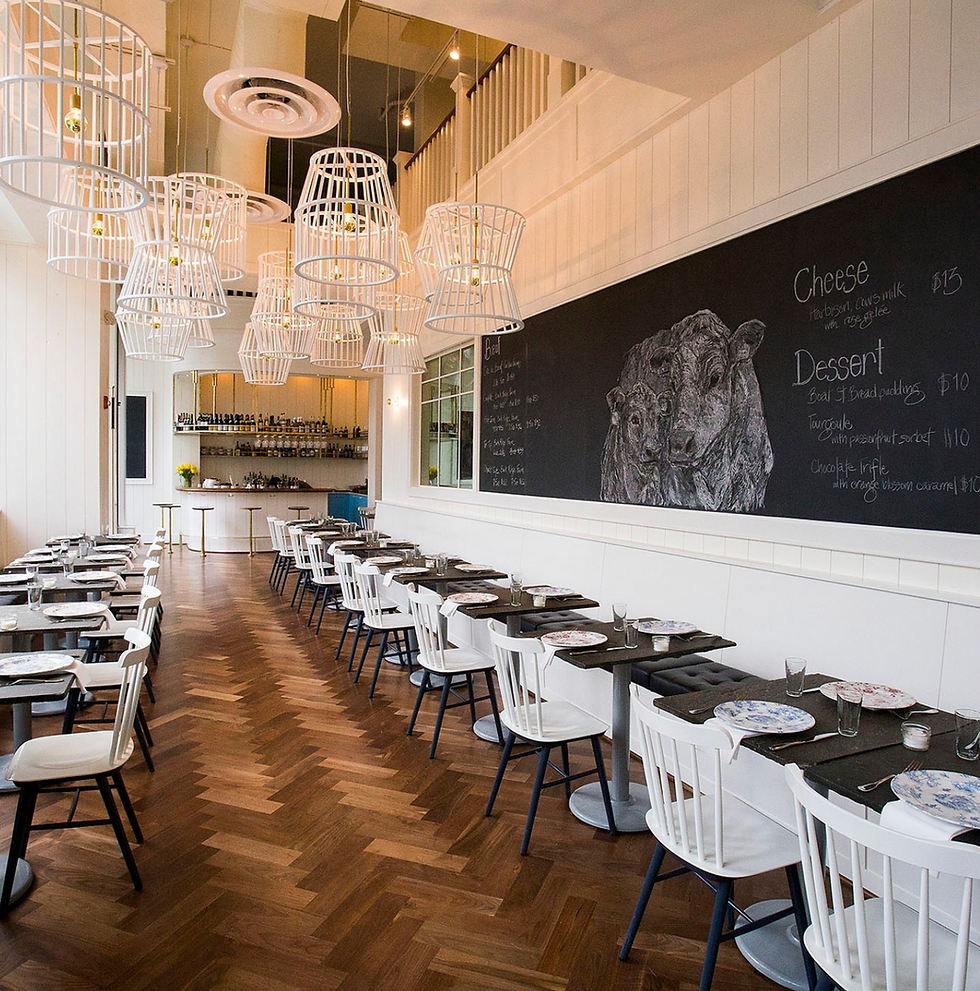Employees at Seattle's Most Renowned Restaurant Group Have Formed a Union
- Jessy Davis
- Jun 20
- 4 min read
Certain employees at Renee Erickson’s Sea Creatures assert that the new service charge system is resulting in financial shortfalls for them.

In December 2024, the personnel of the Sea Creatures restaurant chain were summoned to a meeting. Sea Creatures, established by renowned chef Renee Erickson, operates several of Seattle's most esteemed restaurants, including the oyster bar Walrus and the Carpenter, the inventive steakhouse Bateau, and the Whale Wins, which garnered Erickson a James Beard Award in 2016. During the meeting, management outlined forthcoming adjustments. Following years of employing a tipping model, Sea Creatures restaurants will transition to a service fee system.
Beginning in January, each guest check will indicate that 22 percent of the bill, approximately the typical gratuity, will be appended to the total amount. The checks would indicate that this "is wholly retained by the house." The revenue generated from this service charge is allocated to cover running expenses, including labor costs. During the discussion, employees discovered that this move would result in about fifty percent of the service charge being allocated to hourly workers, who previously participated collectively in the tip pool. Back-of-house personnel, including dishwashers, participated in the tip pool. The hourly rate will increase to a base rate of $25 per hour. Although it may theoretically seem comparable to the pre-service charge earnings, employees report that, in actuality, it resulted in a significant decrease in tip income.
Jeff Kelley, a former front-of-house employee, stated, “It constituted a substantial reduction in pay for all of us.” “They stated that one must either comprehend our message and choose to remain employed here, or resign and seek employment elsewhere...” We promptly asserted, 'No, there exists a third possibility.' They could establish a union.
Subsequent months saw Sea Creatures employees successfully secure union representation at the Walrus and the Carpenter and Bateau — the company's largest and most renowned establishments — in addition to the doughnut shop chain General Porpoise. The United Creatures of the Sea is an atypical alliance for multiple reasons. It is not associated with any larger union, does not collect dues from employees, and primarily focuses on a single issue in its dispute with management: the service charge.
“We required a method to compel Renee Erickson to heed her employees,” states Ford Nickel, a former server at Sea Creatures.
The union asserts that hourly employees universally have experienced wage reductions due to the implementation of the new service charge. According to the union's calculations, unionized employees at Walrus have collectively earned $140,000 less this year compared to the previous tipping scheme. Jeremy Price, a co-owner of Sea Creatures, contests this assertion—while some employees have earned less under the new system, others have earned more, he states in an email. “Back-of-house employees at less frequented restaurants are typically earning slightly higher wages now, including dishwashers.” Servers, particularly at our more frequented establishments, are currently earning slightly less.
At Walrus, hourly employees earn between $28.14 and $56.81 per hour, according to Price. “We assert that these wages, in conjunction with the benefits financed through the service charge, are among the most competitive within the industry.”
United Creatures of the Sea is currently negotiating a contract with Sea Creatures. The union is represented at the bargaining table by Kelley and Nickel, neither of whom is currently employed by the restaurant company and both of whom donate their time to the union. The union additionally provides pro bono legal representation. They aspire to persuade management to decrease the service charge to 10 percent or less and to motivate clients to resume tipping. Union employees are prepared to lower their hourly wage to facilitate the financial viability of Sea Creatures.
“Our sole desire is to earn our gratuities.”
This issue somewhat embodies the evolving and intricate discourse over tipping in American restaurants. Certain industry professionals contend that tipping is fundamentally unjust, prompting a transition to service charges, with some establishments delineating on receipts the portion of the service charge allocated to employees. In Seattle, some restaurant groups have faced litigation for failing to allocate funds as pledged; now, numerous establishments, notably Sea Creatures, assert that the house maintains the whole service charge, which, according to the Seattle Met, protects them from legal action. This renders the entire procedure unclear from the customers' viewpoint. Ford and Nickel contend that a tip pool, in which all hourly employees collectively share the tips accrued during their shift, is a more equitable and transparent method of operation.
Kelley articulates, "Our sole desire is to earn our gratuities." I oppose the operation of eateries in this manner. It is misleading.
Nickel and Kelley have expressed their frustration at the recently announced temporary shutdown of Bateau and its affiliated General Porpoise. Price said that the steakhouse is closing to undergo a "refresh and retool," and United Creatures of the Sea contends that the decision was not influenced by the restaurant's unionization efforts. The shutdown adversely affects the union by halving its membership. If Bateau reopens as a completely new restaurant, the union may need to conduct an entirely new election.
Nickel and Kelley assert that Sea Creatures is mandated by the National Labor Relations Act to engage in negotiations with the union over the layoff terms, including the selection of employees to be rehired upon Bateau's reopening. If an agreement is not reached, they intend to submit a complaint to the National Labor Relations Board. They assert that management's reluctance to discuss the issue with them, coupled with the protracted negotiation process, prompted them to contact local media.
Price asserts that management has been consistently communicating via email, noting an increase in meeting frequency and indicating that they were negotiating in good faith over layoffs at Bateau. “We assert that all individuals are acting in good faith and with the best interests of both staff and the enterprises in consideration.”
In a statement, Erickson remarked, “We take great pride in the restaurants we manage, beginning with our exceptional staff.” We prioritize the well-being of employees at all locations. We endorse our union locations and will persist in collaborating with and heeding them.
The union believes that the listening process has progressed at an unsatisfactorily slow pace. Kelley states, “As a restaurant owner, if all my employees believe my actions are misguided, I would consider their perspectives.”
A prior iteration of this narrative indicated that Sea Creatures has ceased to take gratuities. Patrons may still provide gratuities in addition to the service charge, with tips allocated directly to the staff.





Comentários